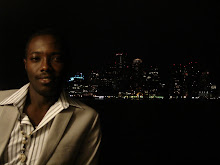It goes by many names; bend-down-boutique, night-mall, second-hand. Yet, the name most widely associated with used clothing in Ghana is “Oburoni w’awu” viz “the white man is dead”. It is a rather morbid play on the fact that these are discarded articles. They were, for a long time, my boutiques (from my goalkeeping jerseys to my “cambous”) and have provided employment to many a Ghanaian. And now, some of them are being banned.
Oburoni w’awu is widely popular because it is very cheap, you can still get premium brands if you have a good eye, and you usually haggled with the seller from a likely 10 times markup to a 3-5 times markup knowing you’d been had but okay with that as well. Kantamanto, in Accra, is the commercial capital of the business with stalls selling anything from belts to suits. There, many of our likely-to-be-otherwise-unemployed youth make a legitimate living.
It all comes at a cost, of course. Locally manufactured goods are very expensive; I still cannot figure out why—is labor not cheap in Ghana? Do we not have raw materials? It may well be because of high fixed costs spread over low volumes of sales. Anyways, the cheaper Oburoni w’awu crowd out Ghanaian innovation and enterprise as these cannot compete on price.
I am not a protectionist and do ascribe to the theory of comparative advantage with each nation doing what it does best. However, two trends make me indifferent or supportive of this action. There has been an upsurge in the number of Ghanaians labeling themselves with made in Ghana goods since the previous administration. This is so even though they are premium priced. Their competition is now more from “first hand” Chinese clothing than second hand western ones. A ban should thus have little, if any effect on the nascent Ghana-made clothing industry.
More importantly, the health risks as laid out in the BBC article give pause for concern. Clothing in intimate contact with such disease prone areas as the crotch should probably not be shared, especially when they are not industrially cleaned before resale. Better a healthy population.
Sadly, this means some youth will be out of work for a while but these are highly entrepreneurial spirits and they will be back on their feet. Plus, I am sure they would not want to survive on peddling disease. Ideally, they will succeed in some innovative Ghanaian enterprise so that when, in future, we say the white man is dead, it would mean less and not more dependence on his castaways.
Prime
*************************************************
This is the way I choose, the destiny I pursue
To help the unfit and the fit
To treat each according to his need
*************************************************
Subscribe to:
Post Comments (Atom)


No comments:
Post a Comment